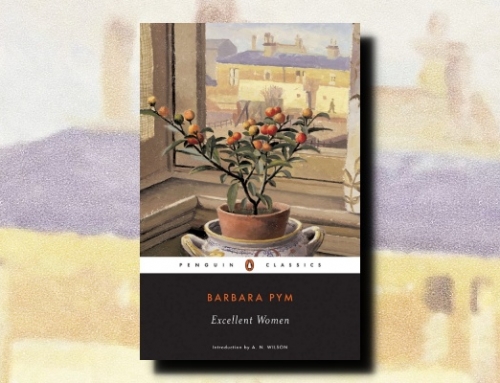
Malicroix
by Henri Bosco (1948)
translated from the French by Joyce Zonana (2020)
NYRB Classics (2020)
288 pp
 When I read the first paragraph of Henri Bosco’s Malicroix, I experienced one of those beautiful, rare moments: I knew I was starting one of my favorite books for the first time.
When I read the first paragraph of Henri Bosco’s Malicroix, I experienced one of those beautiful, rare moments: I knew I was starting one of my favorite books for the first time.
I was not expecting anything from my great-uncle Malicroix. No one, in fact, had ever expected anything from him. We had not seen him in half a century. Holed up in the Camargue on his barren land, he was, for us, the embodiment of wildness. Neither good nor bad, but solitary — in other words, unnerving, perhaps terrible. And yet, cut off from him by this half century of unbroken absence, we had never suffered any harm from those dreadful qualities with which our imaginations clothed him. He ignored us with a kind of scorn. Very grandly, he was called Cornélius de Malicroix, and he was poor. Or so everyone said. His way of life, lost among the lagoons with only a few herders as rough and wild as he, let us think it, and we did. If he were wealthy, would he have chosen such a rude, mean existence in that land of sorrow? No one thought it possible. We are people of fertile lands, people who assign spiritual value to a measure of material ease. If our great-uncle Malicroix had withdrawn into the desert, his withdrawal, as far as we could tell, had been inspired by pride. He was hiding his poverty. To put it plainly: we did not love him.
This opening paragraph not only contains some beautiful imagery (“lost among the lagoons”) and jarring yet familiar insights (“people who assign spiritual value to a measure of material ease”), it contains our narrator’s internal conflict, drawn out beautifully over this slow moving, but often terrifyingly frenetic, novel.
The book begins in early November, sometime in the early 1800s, when our narrator, Martial de Mégremut, a young man in his mid twenties, is leaving the comforts of Le Castelet, his home with his warm extended family, the Mégremuts, who raised him since his mother and father died. These are the people of fertile lands. Though Martial looks upon them with affection, he feels a pull to a life less tame. He attributes this to his mother’s side, the Malicroix, and the best example is his great uncle, introduced in that first paragraph, who lived far away on a wild island in the Rhône River where it flows through the Camargue. Here is a passage where he acknowledges two selves, one quiet but strong enough to be a real threat to the other:
With them I too grew tender, and I felt myself to be a Mégremut when I was among them, for their gentleness is quite contagious. But, once alone, I re-became a Malicroix, with a sort of secret drunkenness and a strange fear. For this Malicroix, unknown to all, hidden within the darkest part of myself, seemed more alive than all the Mégremuts who inhabited me with such ease. He never mingled with them, and his reluctance to show himself created a spiritual solitude within me, strong as a bare flat land, worked by winds and waters. And that is where I would meet him.
His great uncle Malicroix, whom he has never met, has just died, and Martial is his only living relative. Because of this, he is the beneficiary of Malicroix’s estate, whatever that might entail. He’s on his way to find out. The Mégremuts are worried.
When Martial arrives at his new home, he finds a pure example of solitude and wilderness. Surrounded by the river on all sides (and he is terrified of deep running water), Martial recognizes that he has a “love of refuge.” When he finds out from his uncle’s strange notary that his ownership of the island is conditioned upon him living on the island, without leaving, for three months, Martial realizes that he has no desire to live in the rough world and almost has an easy time leaving. But there is an element of competition and pride here that compel him to stay longer and longer, even as he suffers mentally more and more.
This is a book to read in the late hours, which is also when much of it takes place. There are winter wind storms that will make you pull up the covers no matter what the temperature is in your room. The fire place in Martial’s room will also bring you comfort. Bosco — and his skillful translator Joyce Zonana — helped me to feel the physical and mental strains and comforts with our poor protagonist. I was particularly swept up in Martial’s lonesome Christmas Eve. Normally, surrounded by the Mégremuts who pray and feel the presence of angels, Martial, no matter how skeptical the rest of the year, is lifted by angels himself; not so on this Christmas in the Camargue.
This is not just a story about one young man’s struggle with two incompatible compulsions, though. And it’s not just a story of isolation and loneliness. This is effectively a ghost story. As Martial’s time on the island draws out, he sees people. Sure, he’s becoming paranoid and it’s hard for him — and us — to know what’s real and what isn’t, but the impact of these visitors, ghostly or corporal, is powerful. I found the whole book inquisitive and enriching.
I think I’ll keep it on my bedside table a bit longer. I might need to share Malicroix’s fire in the dark hours of night.








Leave a Reply